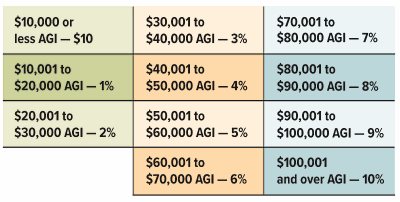The One Big Beautiful Bill Act (OBBBA), signed into law in July 2025, includes many provisions that affect higher education. Here are some key changes and the implications for students, parents, and colleges.
New borrowing limits and payment pause rules
Parent PLUS Loans. Starting July 1, 2026, Parent PLUS Loans will have a $20,000 annual limit and a $65,000 total limit per dependent student. (Currently, parents can borrow up to the full out-of-pocket cost of their child's undergraduate education.) There is a grace period for parents of undergraduate students who are currently borrowing under this program.
Grad PLUS Loans. Starting July 1, 2026, the Grad PLUS Program will be eliminated. It will be replaced by new graduate loans under the existing Direct Loan Program, with new loan limits: $20,500 per year and $100,000 total for graduate students and $50,000 per year and $200,000 total for professional students (these limits do not include undergraduate loans). There is a grace period for students who are currently borrowing under this program.
Direct Loans. Starting July 1, 2026, there will be a new lifetime student loan borrowing cap of $257,500. This limit applies to undergraduate and graduate loans, not Parent PLUS Loans. Also, starting July 1, 2027, the economic hardship and unemployment deferments will be eliminated, and a forbearance (a payment pause due to short-term financial difficulty) will be limited to a single nine-month pause every 24 months.
New student loan repayment plans
OBBBA significantly alters the landscape of federal student loan repayment programs. The Saving on a Valuable Education (SAVE) Plan, the Pay As You Earn (PAYE) Plan, and the Income-Contingent Repayment (ICR) Plan will be phased out and eliminated by July 1, 2028. Borrowers currently enrolled in one of these repayment plans must transition to a new plan by July 1, 2028.
In addition, the legislation creates two new repayment plans as of July 1, 2026: the Standard Repayment Plan and the Repayment Assistance Plan.
Standard Repayment Plan. In the past, fixed monthly payments were spread over 10 years. Under the new Standard Repayment Plan, the amount of time a borrower has to repay a student loan depends on the loan balance:
-
Less than $25,000 — 10 years
-
$25,000 to less than $50,000 — 15 years
-
$50,000 to less than $100,000 — 20 years
-
$100,000 and over — 25 years
Repayment Assistance Plan. The Repayment Assistance Plan (RAP) is a new income-based repayment (IBR) plan that sets monthly loan payments as a percentage of a borrower's adjusted gross income (AGI). This plan is only available to undergraduate and graduate students, not parents. After 30 years of on-time payments, all remaining debt is forgiven. (Current federal IBR plans forgive remaining debt after 20 or 25 years.) A bright spot: payments are applied first to interest, then to fees, then to principal, and if the required payment is less than any new interest that accrues, the extra interest is waived.
For married borrowers who file a joint federal income tax return, their joint AGI is used. And the monthly payment will be reduced by $50 for each dependent listed on a borrower's federal income tax return.
Repayment Assistance Plan: Monthly Payments Based on AGI

Miscellaneous provisions
New Workforce Pell Grant. Starting with the 2026–2027 school year, a new Workforce Pell Grant will be available to students who are enrolled in accredited, short-term (8–15 weeks in duration) job-focused programs, such as certificate programs at community colleges. Funding amounts will be prorated based on the program's length.
New qualified expenses for 529 plans. Starting in 2026, qualified 529 plan expenses will expand to include tuition, fees, books, and expenses for workforce credentialing programs. In addition, the limit on K-12 qualified expenses will increase from $10,000 to $20,000 per year and will cover instructional materials, tutoring classes, dual enrollment fees, standardized test fees, and educational therapies for students with disabilities.
Employer student loan repayment assistance made permanent. Starting in 2026, the $5,250 of tax-free employer-provided student loan repayment assistance will be permanently extended. This amount will be indexed for inflation starting in 2027.